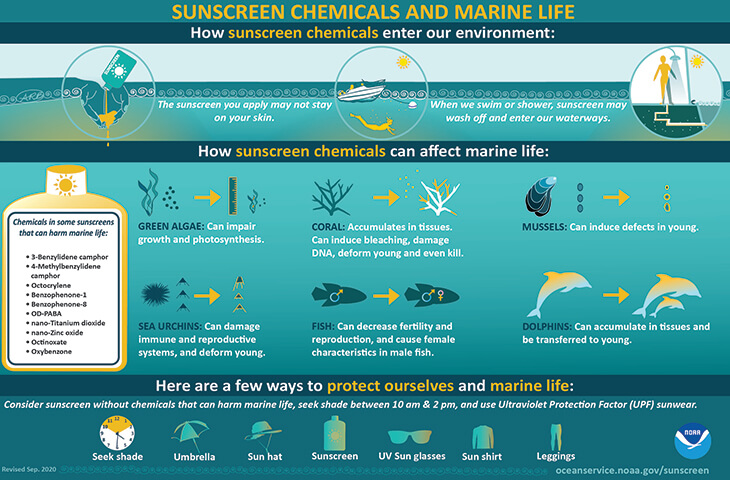Kelly wants to know if the oily substance that she sees at the beach is causing damage to the environment?
•••
Q. Kelly
The weather is finally starting to get warmer, which for me means two things – heading back down to the beach and slathering on loads of sunscreen (I have very fair skin and burn easily).
I noticed the other day when I was swimming at my local beach that my sunscreen seemed to leave an oily residue in the water. Do you know what that is and whether it is causing any lasting damage to the environment?
Read: New low-cost airline to launch in Australia next year
A. It really does depend on the type of sunscreen you are using, but yes it is possible for your sunscreen to cause damage to the environment.
The first thing to note is that there are two types of sunscreen, chemical sunscreen and mineral sunscreen.
Chemical sunscreens contain chemicals that absorb UV rays from the sun, while mineral sunscreens contain zinc oxide and/or titanium dioxide, which will leave a white tint on your skin.
Read: Airlines update flight schedules
Sunlight will bounce off the white pigments in mineral sunscreen, which reflect the sunlight away from your skin before it can be absorbed.
As you might imagine, it is the chemical sunscreens that are responsible for causing the damage to the environment.
That is because one of the key ingredients in chemical sunscreens is oxybenzone, which can be toxic to coral reefs.

Read: Otherworldly destinations right here on earth
Scientists are continuing to study the full effects of oxybenzone on the environment, but it is believed to be partly responsible for coral bleaching.
This is because the toxic effect on coral awakens viral infections in the algae, which leads to the coral expelling the algae. The expulsion of the algae then forces the coral to turn white.
How do you make sure your sunscreen isn’t harming the environment?
The important thing is to look closely at the ingredients.
If the sunscreen contains zinc oxide or titanium oxide, or both, these are biodegradable and relatively safe for the environment.
If the sunscreen contains oxybenzone, then it is not safe for the environment.
Rub-in sunscreens are more likely to be mineral sunscreens that are safe for the environment, while spray sunscreens are more likely to contain harmful oxybenzone.
Were you aware that sunscreen could damage the environment? Which type of sunscreen do you use when you go to the beach? Why not share your thoughts in the comments section below?
If you enjoy our content, don’t keep it to yourself. Share our free eNews with your friends and encourage them to sign up.

